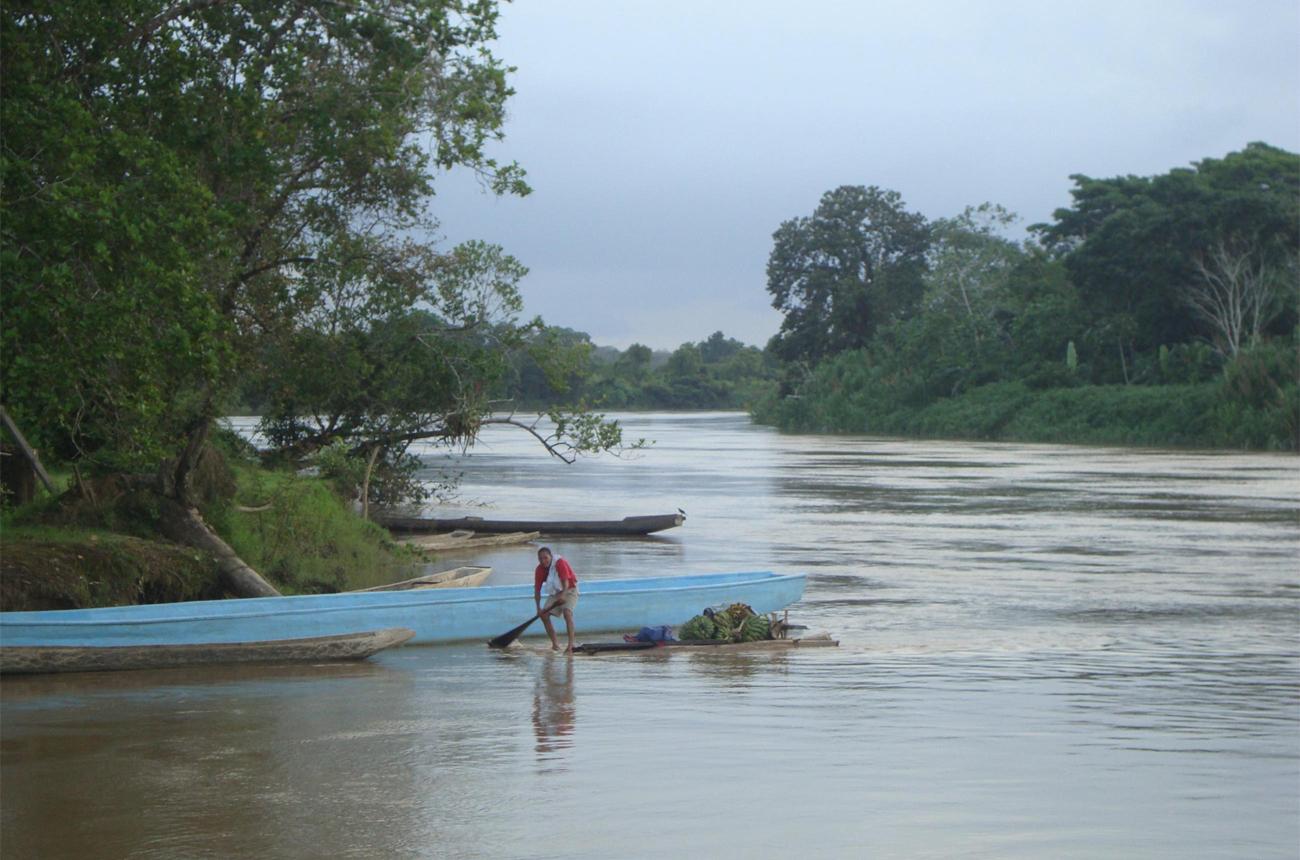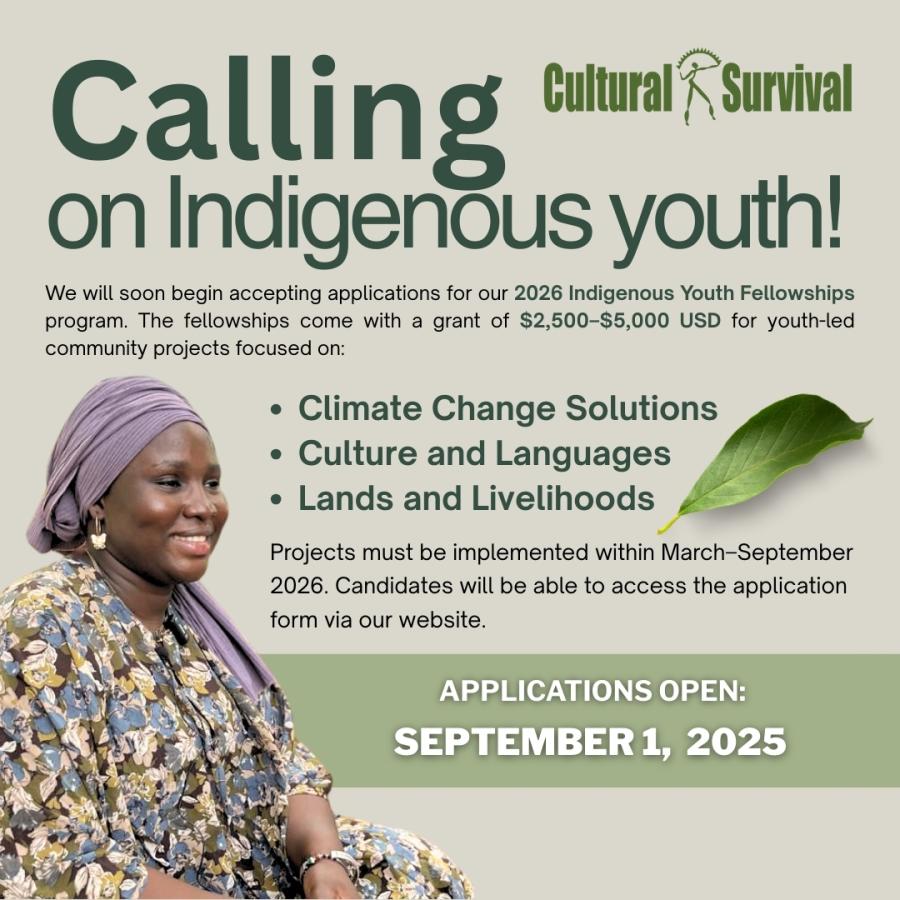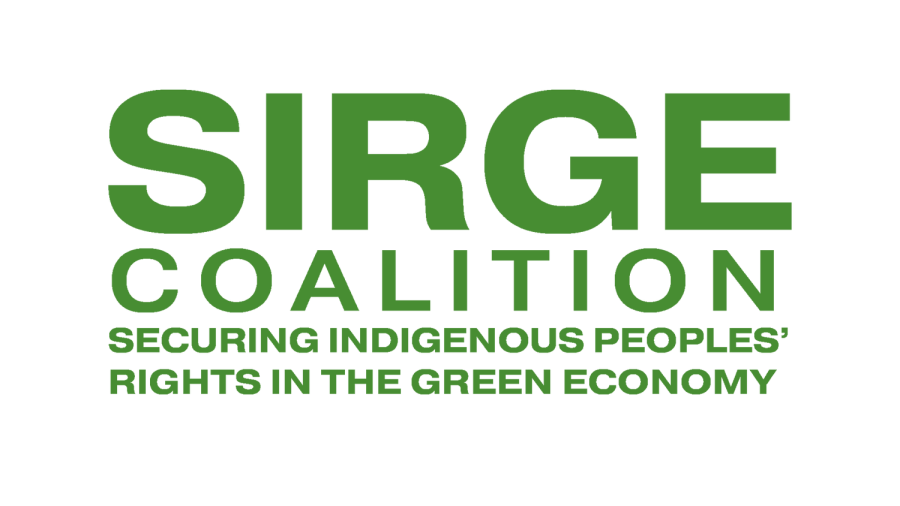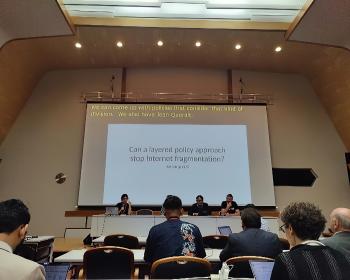
Photo: Transporting plantains along the Patuca river in La Moskitia, Honduras. by Danielle DeLuca
The COVID-19 pandemic has highlighted and exacerbated existing inequalities and human rights abuses that affect Indigenous Peoples around the world. At the same time, governments are taking advantage of the attention that is directed to virus response in order to proceed with projects and policies that further violate Indigenous rights. The following are brief examples of key ways the virus is threatening Indigenous human rights.
Related: INDIGENOUS COMMUNITIES FINDING SOLUTIONS WITHIN THEIR OWN COMMUNITIES TO RESPOND TO COVID-19
1. Deepening Health Disparities
The coronavirus has infected people across all demographic categories. Most vulnerable to infection are the elderly and those with certain preexisting health conditions. It is well established that there are disparities in health outcomes associated with race and socioeconomic status. Due to unequal access to adequate healthcare on top of the ripple effects of centuries of colonization, Indigenous Peoples around the world are particularly vulnerable to the coronavirus.
In the United States, Indigenous individuals have high rates of asthma, diabetes, and cardiovascular disease. Even after the passing of the Affordable Care Act in 2010, Native Americans are also less likely than the average population to be covered by health insurance. A 2009 study of the impacts of the H1N1 virus in the US, Canada, Australia, and New Zealand found disproportionately high death rates among Indigenous Peoples, largely due to preexisting health disparities. The indicators associated with high death rates remain relevant today, suggesting that COVID will be another virus disproportionately impacting Indigenous Peoples. Meanwhile, Indigenous tribal nations’ requests for help from the US federal government to deal with the virus are being ignored, resulting in a lawsuit against the US Treasury Department to secure funds that were allocated to Indigenous Nations but have not been distributed. Tribal nations lack sufficient personal protective gear, healthcare personnel, and culturally competent care in the face of COVID-19.
In the Amazon, umbrella organization of Indigenous nations, COICA, has denounced an approaching “ethnocide” as a result of failure to provide adequate care to Indigenous communities who are at higher risk if exposed. “The lack of clear and specific actions by our governments will drive an extermination of the [Indigenous Peoples who are] defenders of the Amazon.” More than 526 cases have been reported among rural Indigenous villages of Brazil. Brazilian state of Amazonas, remoteness and structural inequalities have led to a crisis for Indigenous Peoples, including people of the Yanomami and Baniwa cultures and hundreds of others.
2. Lack of Access to Information
On top of these inequities in access to services, the lack of access to information in Indigenous languages, including up to date research on effective preventative measures and news on government response measures or global trends means that many Indigenous people who speak only minority languages or who lack access to the internet are excluded from reliable information and available resources. In Nepal, for example, there is a major need expressed by Indigenous communities for reliable, regular communication in Indigenous languages, via community radio. A representative of the Tharu people in Nepal shared the following: ”Radio stations are not working full time. There is a lack of communication between government and people. More information about every activity by the government is needed. There is still a lack of knowledge of COVID-19 among people and people are afraid. Awareness is needed. There is superstition circulating and people are doing superstitious activities. The information regarding every service is needed and news updates needed. Tharu communities have their own system of communication and leading our village so the government should incorporate those systems in their response.”
What can you do? Share Cultural Survival’s Indigenous Rights Radio programs containing vital prevention and health-supporting information in Indigenous languages.
3. Violence against Indigenous Peoples Takes advantage of Global Attention on COVID-19
Both governmental and non-government actors with anti-Indigenous agendas are taking advantage of the fact that the world’s attention is on COVID-19 response to carry out activities that threaten Indigenous sovereignty and lives.
In March 2020, in Valle del Cauca, Colombia, Emberá Indigenous leaders Omar and Ernesto Guasiruma were murdered in their homes, where they were staying as required by the government-imposed quarantine. Fellow Indigenous leader and mayor of the National Indigenous Organization of Colombia (ONIC) Luis Fernando Árias observed, “Not even at home are we safe; it appears we’re just going to be easier prey for armed attackers.” Violence against Indigenous leaders in Colombia is not new; at least 66 Indigenous people in Colombia were murdered in 2019.
Also in March, the US Department of the Interior ordered “disestablished” the Mashpee Wampanoag reservation. “On the very day that the United States has reached a record 100,000 confirmed cases of the coronavirus and our Tribe is desperately struggling with responding to this devastating pandemic — the Bureau of Indian Affairs informed me that the Secretary of the Interior has ordered that our reservation be disestablished and that our land be taken out of trust. Not since the termination era of the mid-twentieth century has a Secretary taken action to disestablish a reservation,” Tribal Chairman Cedric Cromwell wrote in a statement. During the 45-day pause prior to implementation of the order, the Mashpee Wampanoag Tribal Nation filed a lawsuit. The case will be heard May 20.
What can you do? The Wopanaak Language Reclamation Project asks for the following support: Contact Secretary of the Interior Bernhardt and/or Senator Hoeven, Chairman of the Committee on Indian Affairs, and tell them you oppose disestablishment of the reservation. Find contact information and call scripts here.
4. Extractive Industries Greenlighted to Continue Operations Despite Threats to Health and Safety
While leaders around the world were preparing public health interventions, in Brazil, President Jair Bolsonaro reacted to the pandemic by submitting Bill 191 to the National Congress on February 6, 2020. If it becomes law, this bill which President Bolsonaro described as his “dream,” would loosen restrictions on third party activities in Indigenous Territories and permit mineral, oil and gas exploration and extraction, as well as the implementation of large-scale infrastructure projects such as roads and hydroelectric dams. It would also allow intensive agricultural activities, violating national and international laws. Indigenous organizations denounce this bill, saying “the Bolsonaro government’s manipulation of our right to autonomy and repudiates this death project that, at whatever cost, permits the implementation in Indigenous Territories of projects that will cause irreversible impacts, especially to isolated and recently contacted Indigenous Peoples.” In addition to harming the land and livelihoods of Indigenous communities, these industries bring workers into Indigenous territories attempting to isolate during COVID-19. The Boe-Bororo and A’uwẽ-Xavante -- whose territories are located at the epicenter of Brazil’s booming soy region -- are at risk of COVID-19 exposure from traffic along federal highways that run through their territories. The Xavante Warã Association is demanding that Brazil suspend commercial traffic along Federal Highways BR-070 and BR-158 that traverse the Xavante Indigenous Territories of Areões, Marãiwaitsede, Pimentel Barbosa, São Marcos, and Sangradouro, and the Bororo Indigenous Territory Meruri.
What can you do? Help Cultural Survival provide emergency grants to Indigenous communities in Brazil by donating at cs.org/donate
5. Government Responses to COVID-19 Exacerbate Bad Policing
Across the world, governments have imposed stay-at-home orders and other measures to enforce social distancing. Some have expressed concerns about governments’ unclear and inconsistent information campaigns and the harsh penalties for violating these restrictions.
In New South Wales, Australia, where a ban on “non-essential outings” has been put in place, violating orders could result in fines for individuals of up to $11,000 and/or prison time. Low-income groups, including Aboriginal Australians, face more difficulty paying these fines, and may be less informed about changes in policies related to the pandemic. Similarly, Guatemala has implemented a series of changing curfews and a requirement to wear masks in public. Those who fail to comply are being charged with fines of up to 150,000 Quetzales (about 2000 times the daily minimum wage) and jail time. In a country where Indigenous Peoples have frequently been criminalized for their defense of human rights and experience high rates of malnutrition, these regulations have the potential to disproportionately affect Indigenous people who may be forced to choose between violating lock down measures or feeding their families.
In Oaxaca, Mexico, a woman was arrested on April 30 for not wearing a mask and for cutting a piece of tape blocking off a public space. Subsequently, the Committee for the Comprehensive Defense of Human Rights ruled that people may not be arrested for defying guidance to wear masks. It named the threat of human rights abuses as one of the risks of allowing such “administrative sanctions” and emphasized that measures must not “be in violation of human dignity” nor contradict the “federal constitution or international treaties in regards to the promotion and protection of human rights.”
In Temuco, Chile, police used excessive force with Mapuche hortaliceras, women traditionally selling home-grown fruits and vegetables in the streets, by hitting them and throwing their vegetables into the trash.
Numerous reports have surfaced of police beatings in India. While India’s law permits arrests when people violation lockdown requirements, beatings are not sanctioned, yet are widespread. (Note: the previous link contains a graphic video by Al Jazeera capturing some of these instances.)
6. Exacerbation of Poverty
Indigenous Peoples represent a disproportionate amount of the world’s extreme poor population. In Guatemala, many people are unable to work during COVID-19 social isolation measures, given that the economy is largely based on in-person and often informal activities. Meanwhile, money transfers to Guatemala, which comprise over 10% of the country’s GDP, from abroad have decreased by 25% since the onset of the COVID-19 crisis. The Guatemalan legislature recently put forward a bill to prevent shutoffs of gas and electricity to protect vulnerable Guatemalans unable to pay their bills, but Guatemalan President Giammattei vetoed the bill, leaving the vast majority of Guatemala’s population in fear of losing access to these fundamental resources. For the Navajo Nation, lack of running water, electricity, and other basic services exacerbates the impact of COVID-19, and lack of internet in many households perpetuates the cycle by making access to education even more difficult during this crisis.
7. Increased Food Insecurity
Indigenous households worldwide are generally more likely than non-Indigenous ones to experience risk factors associated with food insecurity, such as extreme poverty, single-motherhood, and reliance on social assistance.
In the United States, one in four Native Americans are food insecure, compared to one in eight Americans overall. In the United States, many people on public assistance, such as WIC and other food supports, can use those funds for limited categories of basic foods, and the hoarding and supply-chain issues occurring during the COVID-19 crisis has caused shortages of these items, which is impacting Indigenous people who live on reservations that are many hours drive from the nearest grocery store.
In the Northern Territory, Australia, many Aboriginal people living in remote areas are experiencing food shortages. Supplies are both more expensive and more scarce in these areas, and 13 Aboriginal organizations have collaborated to demand government support to ensure access to basic supplies.
In Bangladesh, over four million Indigenous people are suffering food insecurity due to closed markets, limited transportation, and the particular period of the agricultural cycle. For millions dwelling in Bangladeshi slums, the fear of hunger far outweighs the fear of the virus, desperation is pushing some to consider suicide. Minimal supplies have led to price increases, and for families out of work and without any kind of safety net, there are very few options to get through times of shortage.
In Honduras, the Tawahka community of the isolated Moskitia region report that above the coronavirus, their current emergency revolves around the acquisition of sufficient food for families in need. “The cost of basic consumables has increased 50% during the crisis,” explained members of the Tawahka organization Instituto para el Futuro Común Amerindio. Fishing and hunting is prohibited under militarized lockdown, and it’s estimated that only within the month of March about 750 tons of beans have been lost due to restrictions on movement. Lack of food and income have reportedly left some in Honduras to turn to loans from narco-traffickers in order to feed their families.
8. Increased Land Grabs
Indigenous land defenders around the world have been prevented from protecting their lands due to lockdowns or shifts in focus to road blockades. Farmers have been unable to tend to their fields. This has made it easier for illegal loggers, agro-industry and ranchers to encroach on Indigenous lands. Reuters reported that In Indonesia, two farmers were killed in March in clashes over a long-standing land dispute with a palm oil firm in South Sumatra. In the Philippines, five farmers were killed in Sorsogon province to the south of Manila. “Land rights activists worldwide are at heightened risk now, with their access to justice also stymied because of the lockdowns, said Michel Forst, the former United Nations special rapporteur for human rights defenders. "Land and environmental defenders are sitting ducks," he said in a statement. "If their lives were at risk before, this pandemic has only exacerbated an already difficult situation."
Scientists have long argued that deforestation, as a result of logging and land grabs like palm oil expansion have increased risks of zoonotic disease spreading from wildlife to humans as ecosystems are destabilized and wildlife is forced into closer proximity to humans.
9. Mistreatment of Migrants
Poor conditions and improper health care for asylum seekers and migrants detained at the US border in ICE custody have led to outbreaks of COVID-19 in detention facilities, including the death of El Salvadorian man Carlos Escobar-Mejia. Reuters reported that, as of early May, more than 700 immigrants of the 1,400 that had been tested for coronavirus in ICE custody had tested positive. Despite these high rates of infection, ICE has continued to deport migrants through chartered flights to Guatemala, El Salvador, Honduras, Haiti, and Jamaica, spreading COVID-19 to countries extremely ill-equipped to handle outbreaks. More than 200 cases of COVID-19 have been reported among deportees to Guatemala. When Guatemalan president Giamettei urged the US to halt deportations after recognizing that a majority of emerging cases in Guatemala were traced to incoming flights, the US threatened Guatemala with sanctions.



